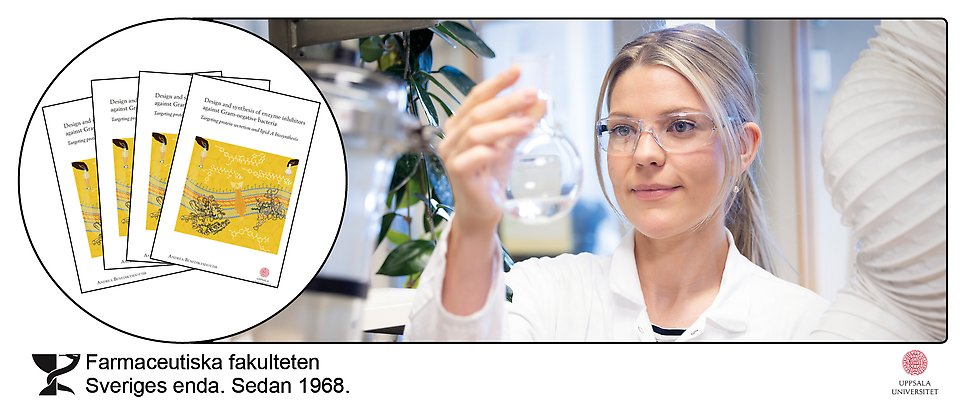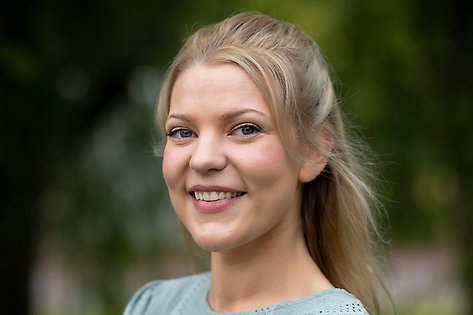New thesis and continued progress in fight against resistant bacteria

Just a minute... Andrea Benediktsdottir, PhD student at the Department of Medicinal Chemistry, who only weeks after the lab's highly publicized discoveries in the search for future antibiotics, is presenting new promising results at her upcoming dissertation with a focus on methods to stop the growth of gram-negative bacteria.
More progress, are we facing a new era in antibiotic research?
“I certainly hope so. The discovery of antibiotics once revolutionized healthcare and remains a critical factor in curing bacterial infections. Along the way, overuse of antibiotics has helped some bacteria to develop resistance, with the biggest challenge most likely being Gram-negative bacteria whose effective defense mechanisms make them a tricky target. The fact that more than 50 years have passed since a new class of antibiotics was approved for their treatment presents society with an urgent challenge. With the launch of several important initiatives – among them international antibiotic platform ENABLE-2 – comes the breakthroughs, not least the identification of a new class of antibiotics reported at our own lab.”
What is in focus of your own research?
“I have concentrated my doctoral projects on two specific target proteins of gram-negative bacteria, the enzymes LepB and LpxH, which play an important part in the bacteria's survival. With the ambition to block these enzymes, we have worked to modify existing compounds with the aim of developing new molecules that will solve the task without damaging human cells.”

Andrea Benediktsdottir, Faculty of Pharmacy
What will we learn from your thesis?
“In a first study, we developed a new class of macrocyclic molecules with the capacity to block LepB, which unfortunately showed negative effect on human blood and liver cells. In a follow-up experiment, we used isosteric modification, enabling us to regulate the harmful effect on human cells against the antibacterial effect. In our final study, we identified a new class of compounds capable of blocking the LpxH enzyme and inhibiting bacterial growth without damaging human cells and ion channels, which is important to avoid unwdesired side effects.”
What can your conclusions contribute in a future perspective?
“We have already showed that the LepB and LpxH enzymes are releant targets in the development of drugs aimed at Gram-negative bacteria and the infections they cause. Consequently, we hope that our findings will be useful contributions in the work to develop new molecules with potential to form the basis for future classes of antibiotics.
And what awaits after your defense on May 22?
“This summer I will finish my work at Uppsala University before travelling to Hamilton, Canada, where I will start a two-year postdoc position at The Wright Lab at McMaster University: One of the world's leading environments for antibiotic research where I will explore semisynthesis, a technique to use bacteria in the development of new molecules. This is a fantastic opportunity for which I am extremely grateful to both Dr. Gerry Wright for welcoming me to his team and to STINT and Apotekarsocieteten, that with two very generous scholarships are providing me the conditions to fully devote myself to my work.”
Facts
- Andrea Benediktsdottir defends her thesis at BMC room B42, Husargatan 3, Wednesday 22 May, at 09.15.
- ENABLE-2 is a platform offering project support in the development of antibacterial drugs with coordination at the Faculty of Pharmacy, Uppsala University.
Learn more
Contact
Andrea Benediktsdottir, PhD Student
Department of Medicinal Chemistry
andrea.benediktsdottir@ilk.uu.se
Text: Magnus Alsne, photo: Mikael Wallerstedt
